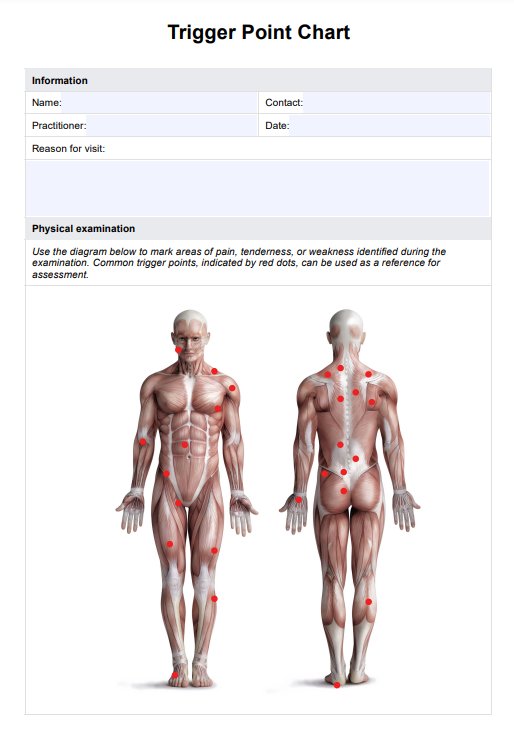Trigger points are hypersensitive areas within skeletal muscles that can cause pain and other symptoms. These points, often described as muscle "knots," develop when muscle fibers contract and fail to release properly, leading to restricted blood flow and localized tension.

Trigger Point Charts
Discover how our Trigger Point Chart can enhance your consultations. Improve patient care with a clear and effective visual tool for accurate assessments.
Trigger Point Charts Template
Commonly asked questions
Referred pain occurs when a trigger point causes pain to radiate to a different area of the body. For example, a trigger point in the shoulder may produce pain in the neck or arm. Referral pain patterns vary based on the location of the affected muscle and the specific trigger point.
Active trigger points actively cause pain, either at rest or during movement. They often result in painful symptoms such as radiating pain and referral patterns, contributing to pain syndromes like tension headaches or tennis elbow. Latent trigger points, on the other hand, do not spontaneously cause pain but can produce discomfort or muscle weakness when pressure is applied. These trigger points often limit the range of motion and may develop into active trigger points if left unaddressed.
EHR and practice management software
Get started for free
*No credit card required
Free
$0/usd
Unlimited clients
Telehealth
1GB of storage
Client portal text
Automated billing and online payments











